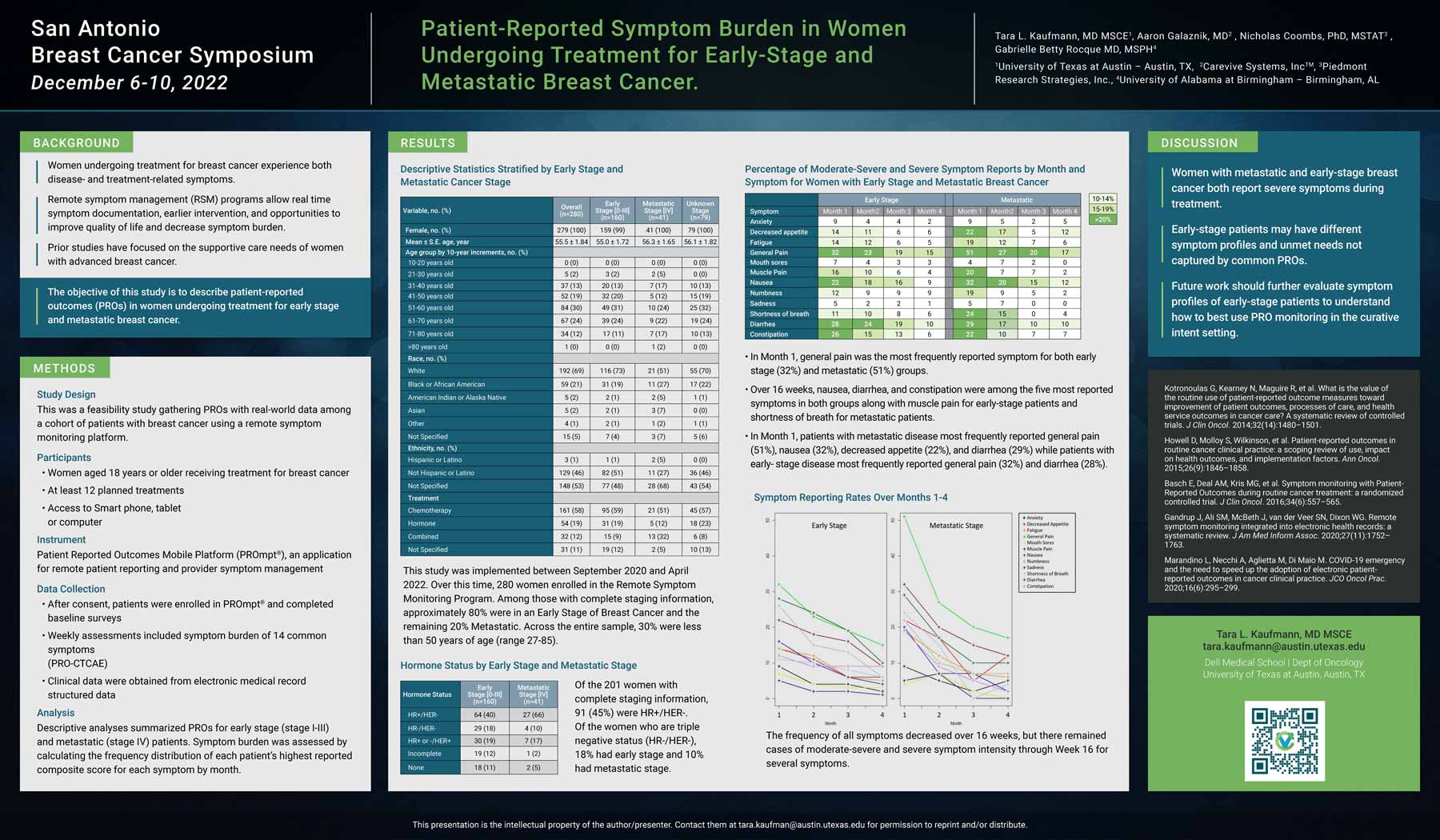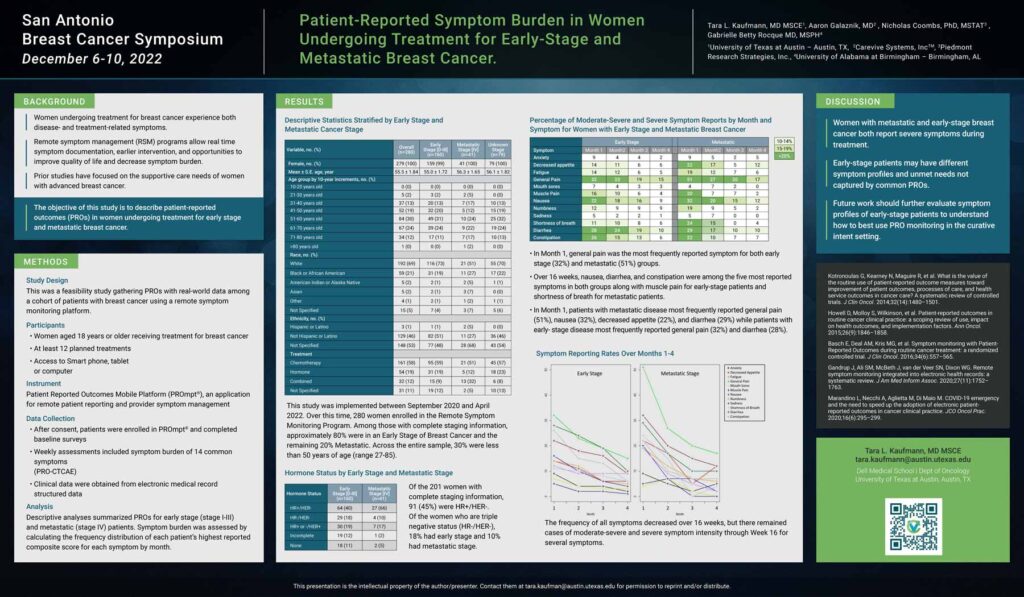
Authors: Tara L. Kaufmann, MD MSCE1,Aaron Galaznik, MD2 , Nicholas Coombs, PhD, MSTAT3 , Gabrielle Betty Rocque MD, MSPH4
1University of Texas at Austin – Austin, TX, 2Carevive Systems, IncTM, 3Piedmont Research Strategies, Inc., 4University of Alabama at Birmingham – Birmingham, AL
Background
Women undergoing treatment for breast cancer experience both disease- and treatment-related symptoms. Remote symptom management (RSM) programs allow real-time symptom documentation, earlier intervention, and opportunities to improve quality of life and decrease symptom burden. Prior studies have focused on the supportive care needs of women with advanced breast cancer.
Objective
The objective of this study is to describe patient-reported outcomes (PROs) in women undergoing treatment for early-stage and metastatic breast cancer.
Methods
Study Design
This was a feasibility study gathering PROs with real-world data among a cohort of patients with breast cancer using a remote symptom monitoring platform.
Participants
- Women aged 18 years or older receiving treatment for breast cancer
- At least 12 planned treatments
- Access to Smart phone, tablet or computer
Instrument
Patient Reported Outcomes Mobile Platform (PROmpt®), an application for remote patient reporting and provider symptom management
Data Collection
- After consent, patients were enrolled in PROmpt® and completed baseline surveys
- Weekly assessments included symptom burden of 14 common symptoms (PRO-CTCAE)
- Clinical data were obtained from electronic medical record structured data
Analysis
Descriptive analyses summarized PROs for early-stage (stage I-III) and metastatic (stage IV) patients. Symptom burden was assessed by calculating the frequency distribution of each patient’s highest reported composite score for each symptom by month.
Results
See poster image for results.
Discussion
- Women with metastatic and early-stage breast cancer both report severe symptoms during treatment.
- Early-stage patients may have different symptom profiles and unmet needs not captured by common PROs.
- Future work should further evaluate symptom profiles of early-stage patients to understand how to best use
References
- Kotronoulas G, Kearney N, Maguire R, et al. What is the value of the routine use of patient-reported outcome measures toward improvement of patient outcomes, processes of care, and health service outcomes in cancer care? A systematic review of controlled trials. J Clin Oncol. 2014;32(14):1480–1501.
- Howell D, Molloy S, Wilkinson, et al. Patient-reported outcomes in routine cancer clinical practice: a scoping review of use, impact on health outcomes, and implementation factors. Ann Oncol. 2015;26(9):1846–1858.
- Basch E, Deal AM, Kris MG, et al. Symptom monitoring with Patient- Reported Outcomes during routine cancer treatment: a randomized controlled trial. J Clin Oncol. 2016;34(6):557–565.
- Gandrup J, Ali SM, McBeth J, van der Veer SN, Dixon WG. Remote symptom monitoring integrated into electronic health records: a systematic review. J Am Med Inform Assoc. 2020;27(11):1752– 1763.
- Marandino L, Necchi A, Aglietta M, Di Maio M. COVID-19 emergency and the need to speed up the adoption of electronic patient-reported outcomes in cancer clinical practice. JCO Oncol Prac. 2020;16(6):295–299.

